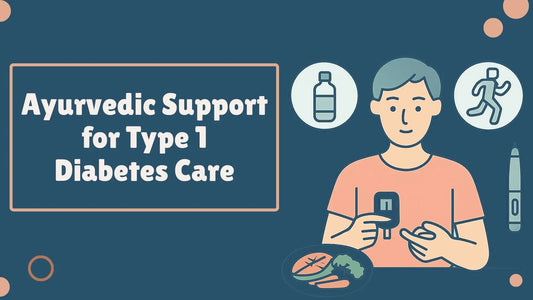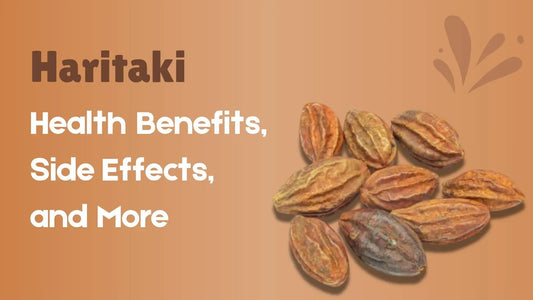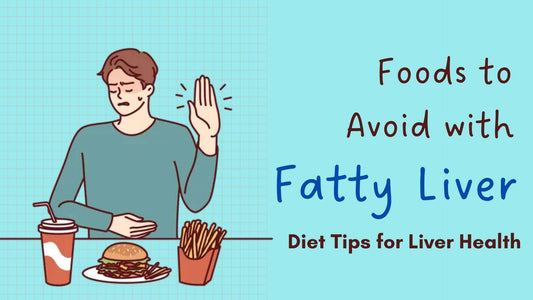
Foods to Avoid with Fatty Liver: Diet Tips for Liver Health
The liver is an important and largest organ of our body, and it performs many important functions for our body. It helps in many essential body functions like Detoxification, Bile production, Metabolism, Immune function, and Hormone regulation.
Fatty Liver: a kind of Liver disease
Fatty liver is also known as "hepatic steatosis". The body stores fat in many parts of the body to be energetic. When fat accumulates in excessive amounts in the liver cells, it makes the liver fatty.
Fatty liver is generally caused by two reasons:
-
Non-alcoholic fatty liver.
-
Alcoholic fatty liver.
Many reasons are responsible for fatty liver:
-
Poor lifestyle
-
Unhealthy Food
-
Metabolic disorder
-
Dietary Factors
-
Viral reason (Hepatitis B-C)
-
Pregnancy, etc.
Foods to avoid with fatty liver
To reduce fatty liver, one must know about self-care for fatty liver disease, which can be possible by consuming foods that are good for the liver. It's important to be careful of what you eat to help manage the condition and prevent further liver damage.
Here are some foods and ingredients you should consider avoiding:
Some of these foods are:
Alcohol
Excessive alcohol consumption is one of the biggest reasons for the fat accumulation in the liver. It's a reason that can not only damage the liver but lead to liver cirrhosis or liver damage. It can worsen fat accumulation, and increase inflammation.
Fried and greasy food
Foods that are high in unhealthy fats (especially trans fats) such as fried foods, fast food, and snacks like chips and cookies can increase fat accumulation in the liver.
Some of the foods are: Chicken, French fries, onion rings, Doughnuts, Fried fish, and Mozzarella sticks.
Sugary food and drinks
Excess sugar intake can promote fat building in the liver cells. Sugar intake can cause dysfunction and liver disease which can damage the liver cells. This can also lead to the accumulation of toxins and cause obesity. Being obese and toxic can contribute to liver damage.
Some of the foods are: sodas, candy, pastries, sugary cereals, sweetened beverages, etc.
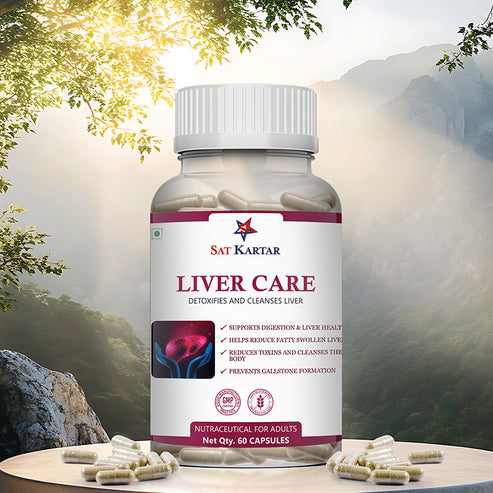
Liver Care: Natural Supplement for Optimal Liver Health
Liver Care is a premium natural supplement designed to promote optimal liver health and detoxification. It helps reduce inflammation, protect against toxins, and manage fatty liver effectively.
Get Liver Care NowCarbohydrates rich food
If a person consumes excess carbohydrates, it can develop non-alcoholic fatty liver, and these non-alcoholic fatty liver diseases can lead to liver cirrhosis and liver damage. Food like white bread, pasta, and refined flour can be a reason to spike up the carbohydrate.
Some of the foods are: Bread, Pasta, Pastries, and Sugary cereals, sweetened granola bars, instant noodles, regular crackers, and processed snack foods.
Full-fat dairy products
There is a conflict in studies about whether full-fat dairy products are healthy for the liver or unhealthy. Some of the research shows that these foods can increase fat accumulation in liver cells and some of the studies say that it may be neutral and protective.
Some of the foods are: whole milk, butter, cream, full-fat cheese, heavy cream, full-fat yogurt, and full-fat ice cream.
Preserved food or juices
Excess consumption of preserved food especially ultra-processed food can lead to non-alcoholic fatty liver. These preserved foods can adversely affect the fatty liver by increasing inflammation, oxidative stress, and insulin resistance.
Some of the foods are: Canned soups, Packaged snacks, and Fruit juices are high in added sugars, sodium, and preservatives.
Red Meat
Consumption of red meat can cause a nonalcoholic fatty liver. Excessive red meat (especially fatty cuts like ribeye or ground beef) can increase the intake of unhealthy saturated fats and contribute to liver damage. Consumption of unprocessed and processed red meat can increase the risk of developing NAFLD.
Some of the foods are: Beef, pork, and lamb, sausages, bacon, and hot dogs, etc.
Food containing High-Glycemic
Food that contains high levels of Glycemic, can lead to rapid spikes in sugar levels that may worsen insulin resistance and fatty liver. A diet with high GI can increase the fat accumulation in the liver.
Some of the foods are: white bread, white rice, sugary cereals, baked goods, potato chips, pasta, doughnuts, soft drinks
Fast food like Pizza
Fast food, packed food like pizza can contain high levels of unhealthy fats, refined carbohydrates, and calories. The regular consumption of these kinds of food can contribute to weight gain, insulin resistance, and fat development.
Precautions
If you are suffering from a fatty liver condition, you must monitor it regularly so that any serious condition can be stopped. To help your fatty liver naturally be healthy, you can take several steps to improve your liver health and avoid factors that contribute to fat accumulation in the liver. Some of the ways to keep liver health stable are:
-
Exercise
-
Balanced diet
-
Avoiding alcohol
-
Managing diabetes and cholesterol
-
Regular Health checkups etc.
Conclusion
If you have fatty liver disease, it's important to be cautious of the foods you consume. Foods that you avoid with fatty liver are such as unhealthy fats, added sugars, processed foods, and alcohol, all of which can enhance liver fat accumulation and inflammation. By avoiding fried foods, sugary snacks, alcohol, and processed meats, you can help reduce the strain on your liver and support its natural detoxification processes.
There are several ways to keep your liver health well-maintained. You can detox your liver naturally by eating a balanced, nutrient-rich diet that includes vegetables, fruits, whole grains, and lean proteins. These foods provide essential nutrients and antioxidants that support liver function and help reduce oxidative stress. Regular physical activity and staying hydrated can also help to maintain your liver health.
Maintaining a healthy weight with the combination of a healthy diet and exercise is one of the most effective ways to prevent or manage fatty liver disease. By adopting a holistic approach that includes dietary modifications, regular exercise, and lifestyle changes, you can help to keep your liver to reverse the effects of fatty liver disease. Always consult with your healthcare provider if you have any serious signs of health issues.
References
Healthline. (n.d.). Fatty liver diet: Foods to eat and avoid. Retrieved from https://www.healthline.com/health/fatty-liver-diet
UChicago Medicine. (2021, September). Fatty liver disease: Diet recommendations. Retrieved from https://www.uchicagomedicine.org/forefront/gastrointestinal-articles/2021/september/fatty-liver-disease-diet
Harvard Health Blog. (2023, April 3). Preventable liver disease is rising: What you eat and avoid counts. Retrieved from https://www.health.harvard.edu/blog/preventable-liver-disease-is-rising-what-you-eat-and-avoid-counts-202304032908
Medical News Today. (2017, October 30). What to eat and avoid for fatty liver disease. Retrieved from https://www.medicalnewstoday.com/articles/320082
Mayo Clinic. (2023, January 9). Nonalcoholic fatty liver disease: Symptoms and causes. Retrieved from https://www.mayoclinic.org/diseases-conditions/nonalcoholic-fatty-liver-disease/symptoms-causes/syc-20354567
American Liver Foundation. (n.d.). Liver disease diets. Retrieved from https://liverfoundation.org/health-and-wellness/healthy-lifestyle/liver-disease-diets
Queensland Health. (n.d.). Managing Metabolic Associated Fatty Liver Disease (MAFLD). Retrieved from https://www.health.qld.gov.au/__data/assets/pdf_file/0020/1027604/gastro_mafld.pdf
WebMD. (n.d.). Best and worst foods for your liver. Retrieved from https://www.webmd.com/fatty-liver-disease/ss/slideshow-best-and-worst-foods-for-your-liver
Baylor College of Medicine. (n.d.). A guide to what and how to eat for non-alcoholic fatty liver disease. Retrieved from https://www.bcm.edu/sites/default/files/a-guide-to-what-and-how-to-eat-non-alcoholic-fatty-liver-disease.pdf
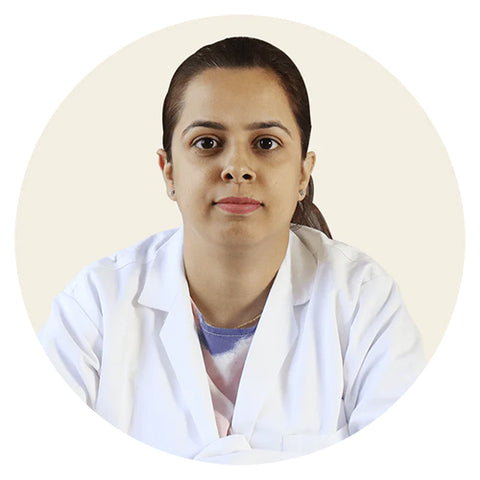
Dr. Hindika Bhagat
Dr. Hindika is a well-known Ayurvedacharya who has been serving people for more than 7 years. She is a General physician with a BAMS degree, who focuses on controlling addiction, managing stress and immunity issues, lung and liver problems. She works on promoting herbal medicine along with healthy diet and lifestyle modification.


